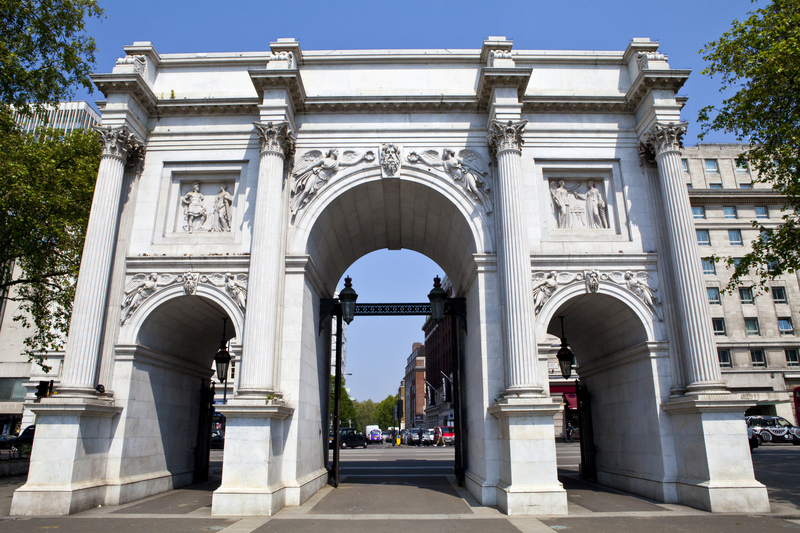From Missteps to Melodies: Why Professional Piano Moving is Crucial
Posted on 07/06/2025
From Missteps to Melodies: Why Professional Piano Moving is Crucial
When it comes to moving, most people focus on packing fragile glassware, wrapping electronics, and carefully labeling boxes. However, few household possessions pose a greater challenge than moving a piano. Their significant size, delicate mechanisms, and immovable weight make pianos uniquely tricky to relocate. Whether you're an amateur musician or a concert pianist, ensuring the safety of your beloved instrument is more than just a matter of convenience--it's an essential step in preserving its value and sound. In this comprehensive guide, we'll examine the importance of hiring professional piano movers, discuss the risks of DIY approaches, and highlight key tips for a harmonious relocation.
Understanding the Complexity of Piano Moving
Pianos might appear sturdy, but they are surprisingly fragile on the inside. Their intricate internal components--including hundreds of strings, hammers, pedals, and precision-tuned parts--make them prone to damage from improper handling. Even a slight tilt or knock can throw a piano out of tune or cause internal harm that's expensive to repair.
- Upright pianos can weigh from 300 to 600 pounds.
- Grand pianos may top 1,000 pounds, thanks to their solid frames and extended soundboards.
- Digital pianos are easier, but still at risk for internal and cosmetic issues if not handled correctly.
Attempting to move a piano on your own often results in missteps: scratched wood, broken legs, damaged walls, or even personal injury. That's why trusting experienced piano movers is not just a luxury--it's a necessity.

The Risks of Moving a Piano Without Professionals
1. Equipment and Knowledge Gaps
Moving a piano requires specialized equipment, such as piano skids, heavy-duty straps, padding, and ramps. Typical household tools and moving blankets won't suffice. Without the proper tools, even the strongest group of friends could accidentally tip or drop the instrument, spelling disaster for both the piano and your property.
2. Damage to the Piano and Property
The delicate exterior and intricate mechanics of a piano are susceptible to damage during any move. Common issues include:
- Scratches and dents to the varnish or wooden body
- Misalignment of legs or pedals
- Cracked soundboards or snapped strings
- Harmed floors, doors, and walls during transportation
These problems not only decrease the value of your piano but can also lead to costly repairs and weeks of waiting for parts and tuning experts.
3. Safety Hazards
Perhaps most critically, moving a piano is a serious safety hazard. The instrument's extreme weight and uneven distribution make it easy to lose control. Untrained movers risk:
- Back and muscle injuries
- Pinned fingers or crushed limbs
- Possible falls from stairs or ramps
Even if you escape personal injury, the property damage that often accompanies amateur moves is not worth the risk--physically, financially, or emotionally.
Advantages of Hiring Expert Piano Movers
Professional piano movers offer more than just brute strength and a moving van. They bring knowledge, skill, and specific tools designed to keep every part of your piano secure and intact. Here's why employing a piano moving expert isn't just recommended--it's crucial:
Expertise and Experience
No two piano moves are alike. Specialized movers assess your instrument's type, weight, structural needs, and the layout of its current and new location. Their experience means they know the best way to:
- Navigate narrow hallways and staircases
- Safely disassemble and reassemble parts if needed
- Position the piano for balanced moving
- Protect both the instrument and the building
Proper Equipment and Protection
A professional piano moving service always arrives with the right gear. This includes:
- Padded moving blankets to shield the body from bumps and scrapes
- Custom dollies and skids for stability over thresholds or stairs
- Heavy-duty straps for secure lifting and transport
- Climate-controlled vehicles for safe long-distance or cross-country moves
They'll also ensure that your piano is firmly secured during transit, minimizing vibration and jostling.
Fully Insured and Certified
One of the major benefits of working with licensed piano movers is their insurance coverage. In the unlikely event that your piano sustains damage, repairs or replacements are covered--a peace of mind you simply don't receive with a group of well-meaning friends.
Tailored Solutions for Every Move
Whether moving a concert grand between auditoriums or a vintage upright into a suburban home, professional piano moving companies offer customized services, such as temporary storage, tuning, and even international relocations.
Why Every Piano Move Is Unique
Each piano presents its own set of challenges. Grand pianos typically require partial disassembly: removing the legs, wrapping the lyre, and tipping the instrument onto a special skid board. Uprights, while compact, often need to be tipped and leveraged through tight corners. Add elevators, spiral staircases, or multiple doorways, and the difficulty only increases. Professional movers assess every obstacle and plan a strategy for each move.
Factors That Affect the Complexity of a Piano Move
- Type and Model: Baby grand, grand, upright, or console?
- Size and Weight: Some pianos exceed half a ton.
- Moving Route: Accessibility, stairs, ramps, and narrow doors all increase risk.
- Distance: Local, interstate, or international moves present different logistical challenges.
- Climate Concerns: Fluctuations in humidity and temperature can impact delicate internal parts.
Professional piano moving services take all these factors into account for a seamless relocation.
Choosing the Right Piano Moving Company
Not all moving companies have the expertise necessary for a safe and efficient piano move. When selecting a service, consider the following:
- Specialization: Do they advertise expertise specifically in piano moving?
- Reputation: Seek out positive reviews and testimonials from satisfied customers.
- Certifications: Are they members of national or regional piano movers' associations?
- Insurance: Is there adequate coverage for damages?
- Transparency: Are their quotes and policies clear and upfront?
Don't be afraid to request an in-person estimate. This helps the moving company evaluate potential obstacles and offer accurate pricing.
Questions to Ask Your Piano Movers:
- How many pianos have you moved in the past year?
- Can you provide references from previous clients?
- What equipment do you use for moving different types of pianos?
- How do you handle unexpected challenges (weather, access issues)?
- What insurance coverage is included and how does it work?
The Cost of Professional Piano Moving: A Worthwhile Investment
While hiring professional piano movers can seem pricey, consider the alternative. The costs of repairing structural damage, tuning after a rough move, or replacing an irreparably harmed instrument far exceed the investment in a proper move. Most moving companies base their rates on the following:
- Type and size of piano
- Distance moved
- Accessibility challenges (stairs, sharp turns, etc.)
- Temporary storage or assembly needs
Remember, protecting your investment now means continuing to enjoy beautiful music and a lasting family heirloom for generations to come.
Preparing for Your Professional Piano Move
Even with professional help, proper preparation ensures your move goes smoothly. Here's how to get ready:
- Measure entryways and staircases ahead of time, and inform your movers of any narrow passages or tight corners.
- Clear the route of rugs, furniture, and obstacles for unimpeded movement.
- Secure the keyboard lid and other moving parts to prevent shifting.
- Climate control: If moving in extreme weather, discuss protective measures with your movers.
- Schedule tuning after the move; even with the best care, vibrations can affect pitch.

Beyond the Move: Preserving Your Piano's Sound and Value
Once your piano arrives, it usually requires several days to acclimate to its new environment. Temperature and humidity shifts may impact tuning and the responsiveness of keys. Arrange for a professional piano technician to inspect and tune your instrument soon after the move to restore perfect sound.
Tips for Piano Care After Moving
- Keep your piano away from direct sunlight, vents, and exterior doors or windows.
- Maintain stable humidity levels to prevent wood from swelling or cracking.
- Clean the exterior with dry cloths, avoiding water or harsh chemicals.
- Schedule regular maintenance to extend the life of your instrument.
Conclusion: Avoiding Missteps for Musical Mastery
Relocating a piano is a delicate, demanding process. From possible physical injuries and property damage to the stress of moving a sentimental musical investment, the risks of amateur piano moving far outweigh the cost of hiring experienced piano moving specialists. Let the pros handle your precious instrument, so you can continue to enjoy its rich, resonant melodies--in your new home, rehearsal space, or concert hall.
Ready for your next move? Invest in professional piano movers--and hit all the right notes from the very first day.
Latest Posts
Ensure Your Sofa's Durability: Expert Storage Techniques
House Moving Hacks for a Hassle-Free Experience
Optimizing Storage for an Unused Freezer
Leave a Clean Slate with These Pre-Move House Cleaning Ideas
From Missteps to Melodies: Why Professional Piano Moving is Crucial



